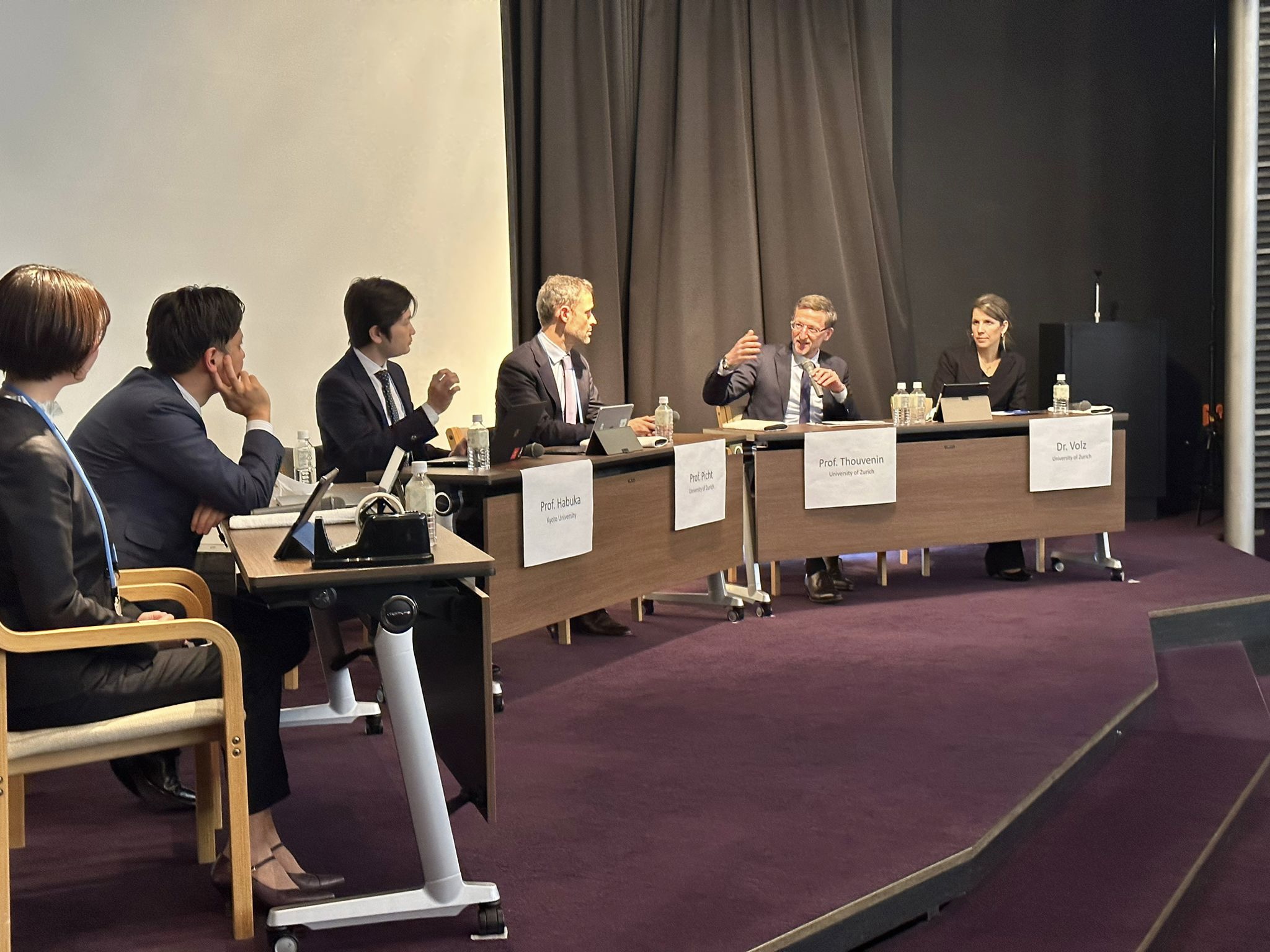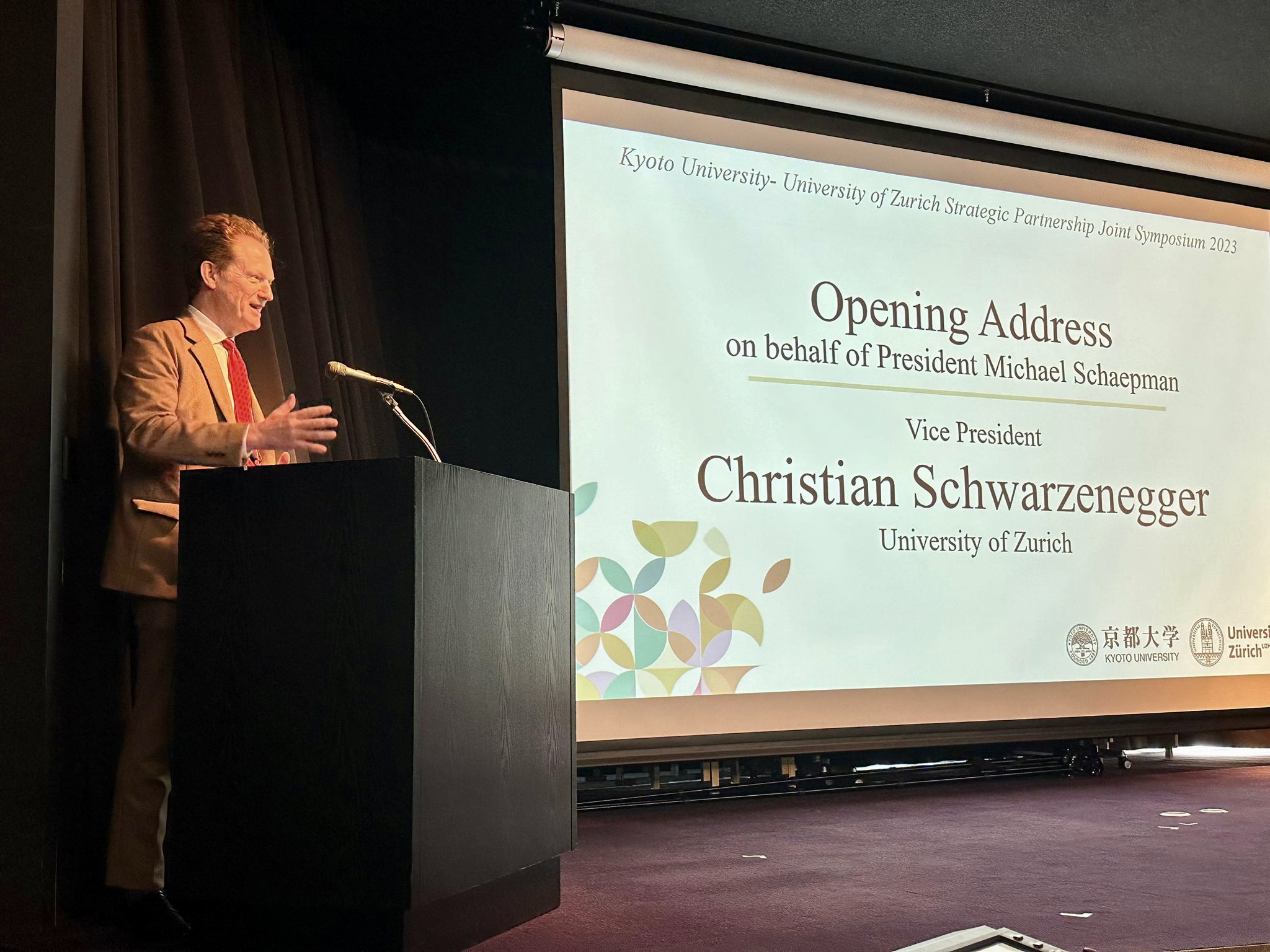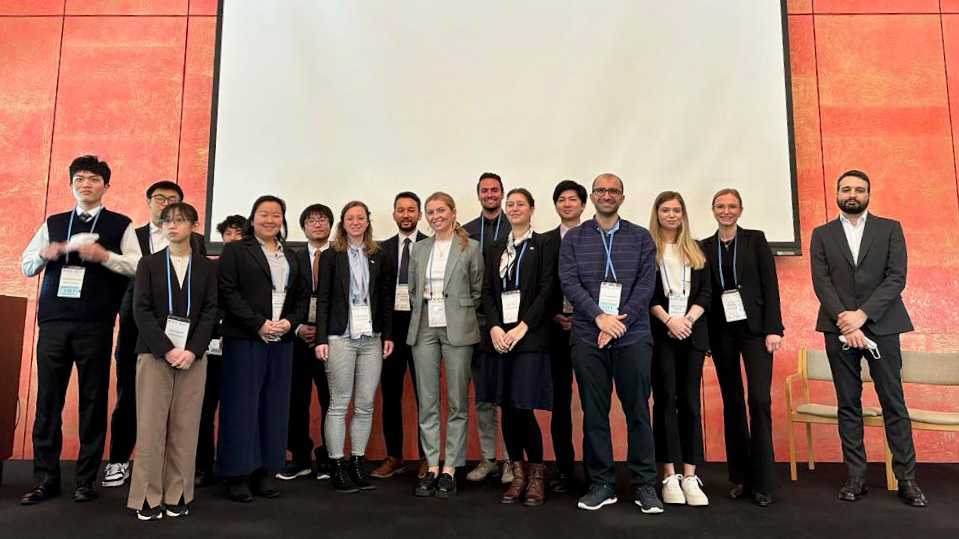Kyoto University and UZH Strengthen Their Strategic Partnership
What can artificial intelligence contribute to improve medical diagnoses? This was one of the topics of the joint symposium of UZH and Kyoto University, which ended successfully yesterday.

What started as a collaboration between two institutes has become a university-wide strategic partnership: UZH’s Institute of Regenerative Medicine and the Center for iPS Cell Research and Application in Kyoto are both leading in their field and have had close ties for more than a decade. In 2020, Kyoto University and UZH took their partnership to the next level and signed a strategic partnership agreement.
The joint vision was to strengthen and broaden their ambitious research efforts and ultimately make headway in tackling some of society's most pressing issues. Since then, researchers from both institutions have engaged in a lively exchange in various areas of research, including stem cell medicine, evolutionary biology, law and artificial intelligence.

Data science and its impact on society
The joint strategic symposium of Kyoto University and UZH took place in Kyoto on 7 and 8 March 2023 and fueled the exchange between established as well as junior researchers from Kyoto and Zurich: "The symposium will contribute to an even deeper alliance between our universities. I particularly like the fact that it involves many early career-researchers. It is a unique experience for their future career in academia," said UZH President Michael Schaepman.
Indeed, sixteen junior researchers from Kyoto and Zurich were given the opportunity to join the event, pitch their research and find potential future collaboration partners. The topics ranged from how deep learning models can help generate radiology reports to how computer-implemented inventions can be protected under patent law. Another pitch showcased the latest research that uses algorithms to improve the efficiency of genome editing.

How AI can support physicians
The expert panel sessions during the symposium were an ideal platform to discuss the role of data science in different fields, for instance in medicine. Michael Krauthammer, who heads the Chair of Medical Informatics at UZH presented several specific examples of the potential value added by artificial intelligence: "AI can support physicians in diagnosing melanoma or breast cancer. It can make predictions on drug-drug interactions. It can also help writing medical reports. The potential is huge," said the medical informatics specialist.
Intellectual property issues unresolved
However, the use of AI directly leads to other questions. If we use artificial intelligence to innovate, whose work is it in the end? Law experts Florent Thouvenin and Peter Picht discussed the impacts on intellectual property with their Japanese counterparts. There is not yet an answer to this central question. But both agree that a more flexible approach to AI inventorship is required and that we also need new ways for software protection, especially in the AI context.
Joint funding opportunities
The strategic partnership between Kyoto and Zurich ensures that high-potential research collaborations will receive the necessary support to strive. UZH, for instance, has put the UZH Global Strategy and Partnership Funding Scheme in place, specifically to support projects with partner universities. Over the last years, several joint research projects between Kyoto University and UZH have already received funding.
One such project is the Institute for Regenerative Medicine (IREM)'s investigation into the aging and rejuvenation of stem cells. Another collaborative project in plant science is exploring the impact of climate change on wheat. Additionally, a trilateral teaching course in microbial biology is being developed by Kyoto University, UZH and the University of Edinburgh.
Promoting interdisciplinary collaboration
The joint symposium came to an end on 8 March but marks the beginning of new collaboration opportunities and the continuation of a strong partnership, based on interdisciplinary collaboration, sharing knowledge and resources, and fostering a global perspective.
“Cooperations with leading universities like Kyoto University foster new ideas and cutting-edge research on both ends. I am confident that we will continue to push the boundaries and make a meaningful impact on the world," says Christian Schwarzenegger, Vice President Faculty Affairs and Scientific Information.
Priska Feichter
